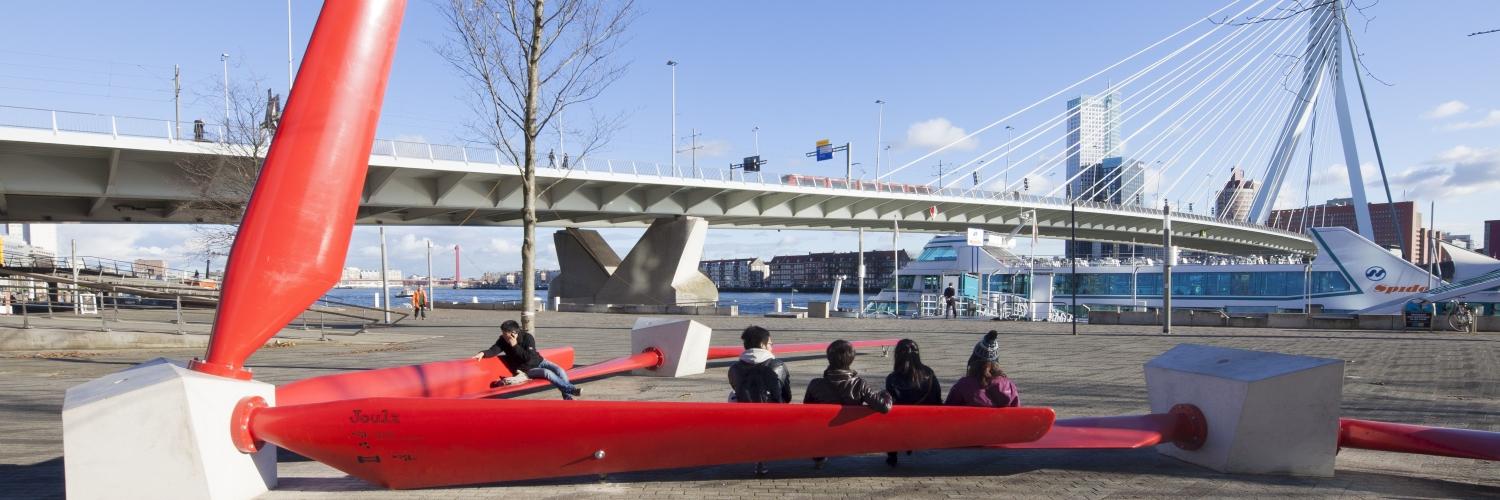
News
3 March 2016
Green Deal to boost circular economy in the EU
Agreements with neighbouring countries will remove obstacles to international trade in waste
On Thursday 3 March the Netherlands, Belgium, the United Kingdom and France signed a Green Deal in Brussels on making better use of secondary raw materials. As differences in national legislation hamper international trade in these resources, the four countries have decided to harmonise their policies for certain materials. This is good for the environment and the economy, because it means more waste will be recycled or recovered. The first resource streams to be traded under this agreement are incinerator bottom ash, compost and PVC. More secondary resources are expected to follow in due course.
North Sea Resources Roundabout
The North Sea Resources Roundabout (NSRR) Green Deal was signed by numerous parties, including the four national governments, the business community and industry associations. The Dutch Waste Management Association is a partner in the NSRR, as are its members Van Gansewinkel, Twence and Inashco. Other Dutch signatories are the Confederation of Netherlands Industry and Employers (VNO-NCW), the Port of Rotterdam, Groningen Seaports and environmental organisation Natuur & Milieu. The idea behind the NSRR is that the North Sea trading nations will stimulate more circular business. Representatives of government and industry in the participating countries will work out solutions aimed at removing barriers at borders.

Let frontrunners innovate
Sharon Dijksma, Dutch minister for the environment: ‘To make our economy greener, I want to allow sustainability leaders in the business community room for innovation. And that is exactly what this deal does. By redefining what constitutes "resources”, and at the same time aligning the definition among neighbouring countries, things will get easier for business. This will benefit the environment and will add considerable impetus to economic activity between countries in the North Sea region.’
Sharon Dijksma (Dutch minister for the environment):
"I want to allow sustainability leaders in the business community room for innovation."
Growing market
Henk Kamp, Dutch minister of economic affairs: 'This agreement will allow Dutch companies in the natural resources and waste management industry to profit from a growing market. This Green Deal underlines that the circular economy promotes business, provides employment opportunities and improves our local living environment. For example, compost will be easier to trade when neighbouring countries view it as a fertiliser rather than waste.’
Bottom-up
Pieter Hofstra, chair of the DWMA: ‘The Dutch Waste Management Association expects this Green Deal will boost the European market for secondary raw materials and so stimulate green growth. The initiative which the North Sea countries have taken to streamline waste legislation can benefit other member states as well. We believe in this bottom-up approach.’

Pieter Hofstra (DWMA):
"We expect this will boost the European market for secondary raw materials and so stimulate green growth."
Organics fertilisers
Marc Kapteijn, CEO Twence: 'Twence recognises the international need for organics fertilisers and is delighted that compost has been accepted as a Netherland-UK pilot flow in the North Sea Resources Roundabout. We hope that this will open possibilities for further international cooperation and contribute to solving the shortage of organic fertilers. This International Green Deal supports Twence in its efforts to close the loop for nutrients.'
Marc Kapteijn (Twence):
"This International Green Deal supports Twence in its efforts to close the loop for nutrients."
Long-term collaborative partnerships
Marc Zwaaneveld, CEO van Gansewinkel: 'At Van Gansewinkel we look at today’s products as the temporary storage combination of valuable raw materials. At the ‘end-of-life’ stage of a product, we need to ensure that their building blocks are recovered. To realise this we partner with other companies. By collaborating within this Green Deal North Sea Resource Roundabout with partners we focus at closing specific product cycles and work together towards a more circular economy. Van Gansewinkel closes the circle from waste to raw materials. We make sustainability tangible by recovering scarce raw materials and resupplying them as the ingredients for new products. Our aspiration is to enter into long-term collaborative partnerships so as to accelerate the transition towards a circular economy, with tangible objectives and new revenue models.'
Marc Zwaaneveld (Van Gansewinkel):
"By collaborating within this Green Deal with partners we focus at closing specific product cycles and work together towards a more circular economy."
